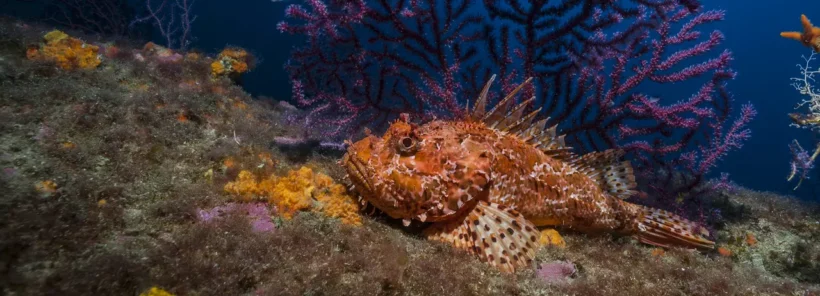Ocean researcher David Diaz said such ocean heatwaves were “the equivalent of underwater wildfires, with fauna and flora dying just as if they had been burned.”
Scientists are warning that the prolonged and above-average temperatures gripping the Mediterranean Sea are causing a “marine wildfire” that could permanently alter the ecosystem and cause species extinction.
David Diaz of the Spanish oceanographic institute told Le Monde such ocean heatwaves were “the equivalent of underwater wildfires, with fauna and flora dying just as if they had been burned.”
The region has suffered an extreme heatwave this month, producing record air temperatures and low winds, causing a significantly hotter and deeper layer of ocean surface water.
As Reuters reported, “The warmer air along with shifting ocean currents and a stable sea surface have warmed coastal Mediterranean waters several degrees Celsius beyond the average temperature of 24°C to 26°C for this time of year.”
Some of the highest water temperatures were recorded on the eastern coast of Corsica which hit a peak of 30.7°C in July—more than 6°C warmer than normal for this time of year. Spain’s Balearic Islands and the Italian coast saw an increase of 5°C.
“Keep in mind water has more than 4X the heat capacity of air, which means it’s much harder for water to warm than air,” tweeted Colin McCarthy from his US StormWatch account. “A 6.2°C sea surface temperature anomaly in the Mediterranean is simply astonishing.”
The Mediterranean Sea is considered a biodiversity hotspot by scientists—accounting for less than 1% of the world’s ocean surface but inhabited by about 10% of all marine species.
Rubén del Campo of the Spanish national meteorological service told Le Monde that the Mediterranean’s native populations of “corals, of shellfish, and of fish are suffering enormously.”
The Mediterranean hosts up to 20,000 marine species of fauna and flora, 25% of which are native to the region. The sea’s endemic Posidonia and Neptune grasses play a vital role in the ecosystem by storing carbon—a hectare of the grass is capable of absorbing 15 times more carbon dioxide every year than a similarly sized piece of the Amazon rainforest.
Emilie Villar, a Marseille-based marine ecologist, told the La Provence 700 Mediterranean species are threatened with extinction and “if the shock lasts too long, or if the species is fixed and cannot migrate, others will fill the void—or, if conditions become too harsh, the Mediterranean risks dying out.”
A recent study published in the journal Proceedings of the Royal Society Bfound that marine heatwaves associated with the climate crisis have already destroyed up to 90% of coral populations in parts of the Mediterranean. Additionally, a World Wildlife Fund report last year “found that water temperatures in the Mediterranean were rising 20% faster than the global average, making it the world’s fastest-warming sea.”
Karina von Schuckmann, an oceanographer at the nonprofit research group Mercator Ocean International, said “Since at least 2003 [marine heatwaves] have become more common and in future they will last longer, cover more sea, and be more intense and severe.”
Schuckmann said the most effective course of action to mitigate marine heatwaves is for governments to reduce greenhouse gas emissions contributing to global warming.
Jenna McGuire is assistant editor and staff writer in the Common Dreams newsroom.
Editor’s note: this article originally appeared on Common Dreams
Cover Image: A large-scaled scorpionfish (Scorpaena scrofa) camouflaged on the rocky bottom sea on April 26, 2007 in Marseille, France. (Photo: Alexis Rosenfeld/Getty Images).



 By
By
Leave a Reply